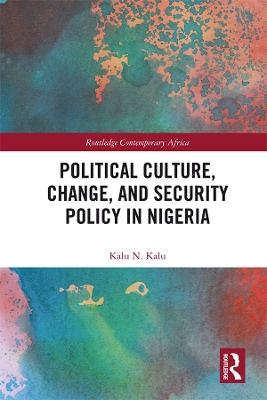Routledge Contemporary Africa
1 total work
Demonstrating how political culture facilitates or distorts political preferences and political outcomes, this book explores how the historical development of social conditions and the current social structures shape understandings and constrain individual and collective actions within the Nigerian political system. Political Culture, Change, and Security Policy examines the extent to which specific norms and socialization processes within the political and civic culture abet corruption or the proclivity to engage in corrupt practices and how they help reinforce political attitudes and civic norms that have the potential to undermine the effectiveness of government. It also delineates specific doctrinal models and strategic framework essential to the development and implementation of Nigeria’s national security policy, as well as innovative approaches to national development planning.
Professor Kalu N. Kalu offers an exhaustive study that integrates several quantitative models in addressing a series of theoretical and empirical questions that inform historical and contemporary issues of the Nigerian project. The general premise is that it is not enough to simply highlight the problems of the state and address the what question, we must also address the why and how questions that drive political change, policy preferences, and competing political outcomes.
